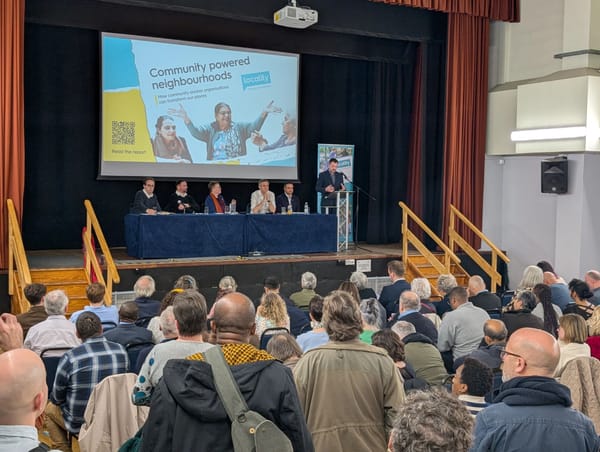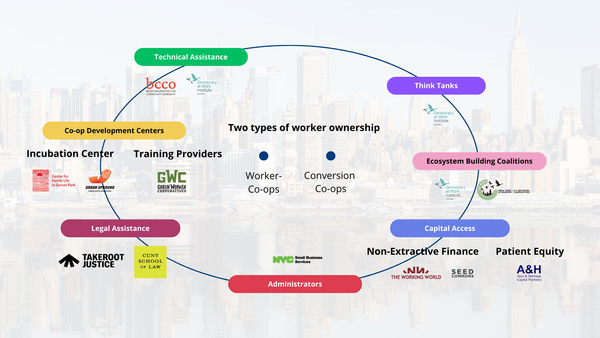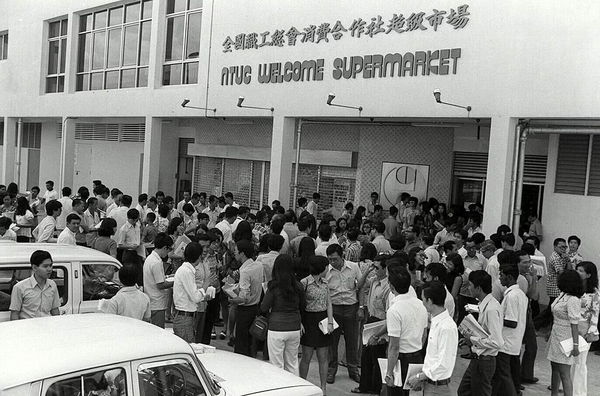How might we create a thriving co-op ecosystem in Singapore?
From working with social service agencies to overseas study trips, here are 11 recommendations to create an ecosystem that supports more co-ops in Singapore.


Having analyzed the issues that make it difficult for co-ops to form in Singapore and the lessons learnt from New York City's worker co-op ecosystem, I'll now like to propose 11 recommendations for the Singapore National Co-operative Federation (SNCF), the Registry of Cooperative Societies (RCS) or anyone interested to contribute to a thriving co-op ecosystem to consider.
These 11 recommendations seek to address the systemic issues identified in my analysis, which are:
- Inadequate incubation support for startup co-ops
- Landscape for capital access is nascent
- Lack of understanding and imagination of co-ops
- Co-op movement stewarded by only 2 organizations
I offer them in hopes that they could spark further discussion and move us into the direction of a more thriving co-op ecosystem in Singapore.

Inadequate Incubation Support for Start-up Co-ops
Work with trusted social service agencies
Learning from the Center of Family Life and Urban Upbound in part 2, SNCF could partner with neighborhood-based social service agencies like Beyond Social Services or Allkin Singapore Ltd who believe in a community development approach and are trusted in the neighborhoods they operate in.
These agencies could identify individuals from marginalized communities who might benefit from starting a worker co-op and collaborate with SNCF to help these individuals create business plans, learn about the co-op model and receive technical assistance.
For example, could a group of low-income caregivers who can't work regular jobs start a food business run as a worker co-op, using their cooking skills and sharing responsibilities?
While working with A Good Space, I learnt of various economic interventions aimed at uplifting low-income families, such as the Progressive Wage Model, financial aid, upskilling, job coaching and job placements.
Could enabling low-income community members to own businesses and make decisions be another way to reduce economic inequality and restore dignity?
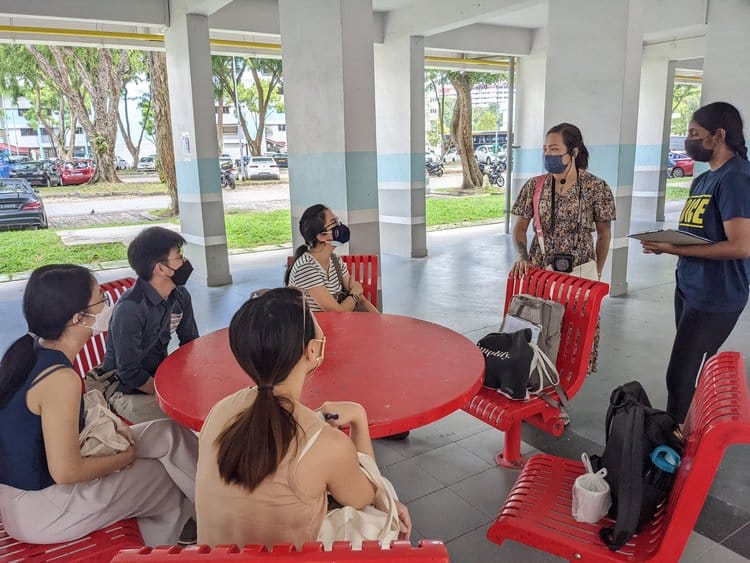
While not a worker co-op yet, an inspiring example is Skillseed's collaboration with Allkin to launch the Resilience Trails. This initiative offers learning journeys in rental flats, led by guides who have experienced poverty themselves.
The guides earn up to seven times more per hour than a typical F&B job, which gives them more time to care for their families, building a positive cycle in the long run.
This approach could represent a more progressive shift for charities, aligning with Chapter 6 of the Forward Singapore movement's intent to uplift lower-income families towards sustained progress.
What if beyond providing financial assistance, charities invested in their beneficiaries by helping them to start worker-owned businesses to escape the poverty cycle?
Grow capabilities for technical assistance
To increase the chances of startup co-ops succeeding, Singapore's co-op ecosystem would benefit from experts who can offer technical assistance in areas like business model development, income generation and designing governance models.
This could be achieved in a few ways:
First, SNCF could build its internal capabilities by hiring an Entrepreneur-in-Residence (EIR), to help startup co-ops find and assess new business opportunities, advise on product development and marketing and connect them with potential partners, investors or customers.

EIRs are often hired by startup accelerators, venture capital firms or established companies and should ideally have the following experience, extracted from an EIR position offered by the global organization Entrepreneur First.
- Demonstrated experience as a founder in one or more startups, or as a senior team member in one or more early-stage, high-growth companies
- Demonstrated knowledge of early-stage startup development and funding of startup companies
- Able to provide mentorship in topics such as strategy, business development, product management, technology, UI/UX, marketing, public relations, fundraising, financial literacy and social impact.

Second, SNCF could launch a mentoring program pairing startup co-op leaders with experienced veterans. I was fortunate to meet John Cheong, former Chairman of the successful Methodist Co-op and Ong Chin Wah, founder of the EP4ID co-op, at an event by chance and we developed a friendship.
The business insights and stories they shared helped refine A Good Space's business model and deepened my connection to the co-op movement.
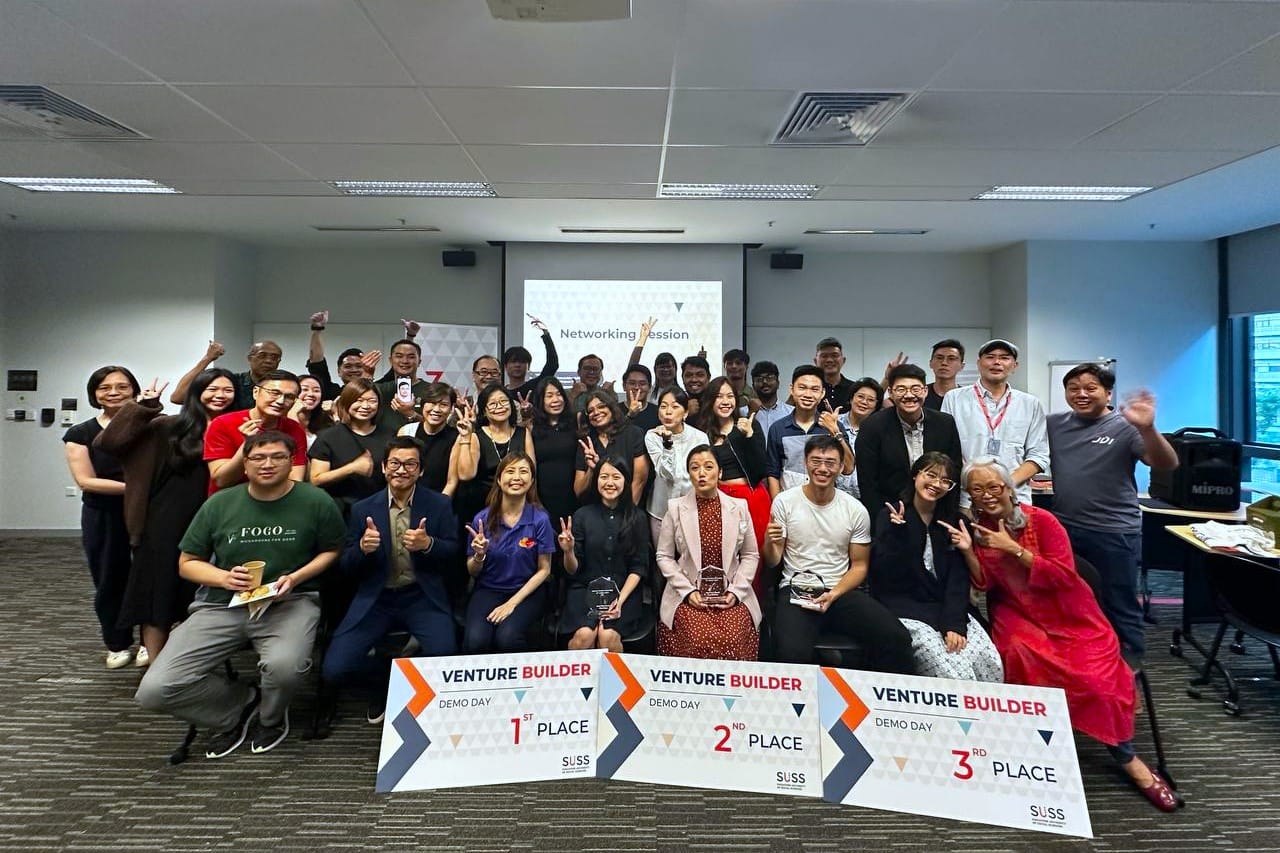
Third, SNCF could collaborate with universities like the Singapore University of Social Sciences (SUSS) to launch a 6-month co-op startup bootcamp, similar to the one by Green Worker Cooperatives in New York City mentioned in Part 2.
The program could include the following key components with guest lectures from co-op leaders in Singapore and abroad:
- History of co-ops, the different types of co-ops and best practices from successful co-ops locally and overseas
- Conducting customer interviews to develop a deep understanding and appreciation of customer problems and pain points
- Modules on entrepreneurship methodologies, co-op governance, marketing, business models, shared decision making and creating workplans
- Building a bootstrapped prototype of the product / service which the co-op will offer, and a pilot enrollment of members
- Provide a monthly stipend (e.g. $1,500) for participants who are participating in the program and access to the New Co-op Grant under the CCF Grant Framework
- Business support services like legal incorporation
Even if participants don't start co-ops at the end of the program, they will gain deeper knowledge about co-ops and may continue advocate for the movement in their professional roles. They might also decide to join co-ops as staff, addressing the recruitment challenges that many co-ops face.
SNCF used to run 3-day hackathons to encourage youths to start co-ops. A bootcamp would offer a more structured approach, aligning with global startup incubation practices.
Additionally, SUSS already runs a successful venture builder program and is a SkillsFuture Approved Training Provider. Partnering SUSS could allow participants to use their SkillsFuture credits to subsidize the costs of the bootcamp.
Partner law schools to provide legal assistance
Similar to how TakeRoot Justice and the City University of New York (CUNY) School of Law's Community & Economic Development Clinic offer crucial legal support to co-ops in New York City, could SNCF or RCS partner local law schools such or non-profit groups like Pro Bono SG?
Student interns or volunteer lawyers could offer legal help to startup or existing co-ops on matters such as entity-type advice, legal formation, governance, contracts, employment and other operational issues.

Expand the New Co-op Grant framework to subsidize technical assistance for startup and conversion co-ops
The New Co-op Grant currently covers capital expenses, operating costs and other areas approved by the Central Cooperative Fund Committee (CCFC). CCF could expand this framework by:
- Allowing the grant to cover hiring consultants for business model development, securing loans, grants and investments and designing governance structures.
- Include support for costs related to conversion co-ops, where a profitable business is sold by the owner to their employees to form a worker-owned co-op. This could cover costs like hiring a consultant like the Democracy at Work Institute, to journey with the owner to conduct an initial feasibility assessment, design a new governance structure and conduct training for employees to build a culture of ownership.
To ensure co-ops receive quality assistance from vendors who understand the principles and values of the movement, CCFC could pre-approve local vendors like the community-based management consultancy Solve n+1 or overseas vendors like the Democracy at Work Institute.
This is similar to how the National Council of Social Service (NCSS) appoints pre-approved vendors for the grants they award to charities in the areas of organization, people and service development.
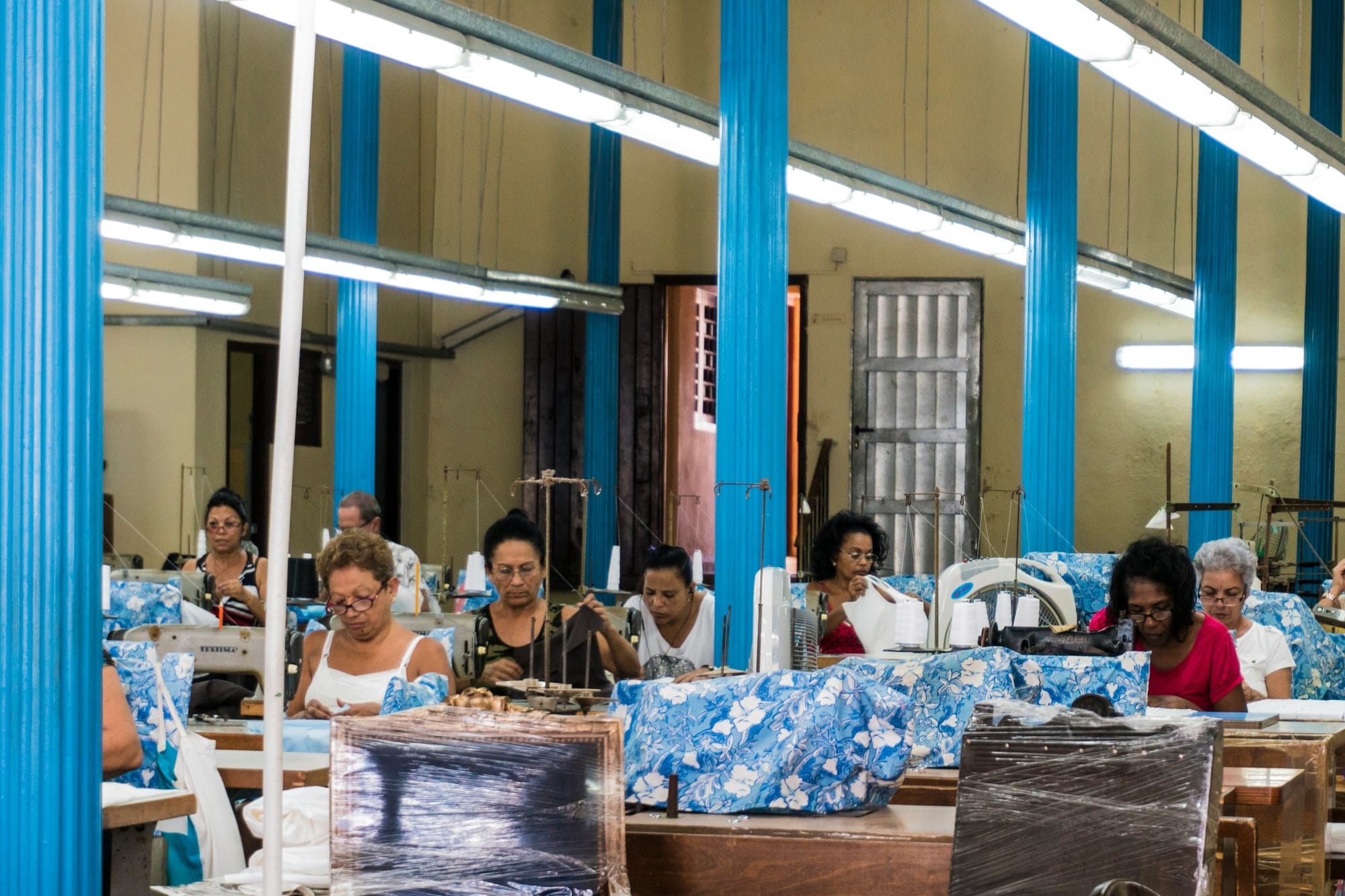
Have an acceptable 'failure' rate
In Part 1, I shared the challenges I faced while incorporating A Good Space (AGS), such as waiting 9 months for our incorporation to be approved and later being rejected for the New Co-op Grant, despite three years of operation and promising revenue streams.
In both challenges, the main concern from RCS and the CCF Secretariat was our financial viability. They told us: "we must ensure members aren't left stranded if the co-op shuts down" and "we need to be responsible with public funds when making grant decisions".
I believe this cautious approach comes from RCS being under the Ministry of Culture, Community and Youth, which also houses the office of the Commissioner of Charities who also serves as the Executive Director of RCS, instead of the Ministry of Trade and Industry, which is more focused on economic development and business growth.
While RCS' concern is valid, a healthy tolerance of risk is vital for business innovation and new co-ops to form. Just as venture capital funds spread risk by investing in multiple companies, could RCS and the CCF Secretariat adopt an 'acceptable failure rate', similar to the way factories allow for a certain level of defects?

I believe that the cost of investing in a co-op that 'fails' can still be worth it, as the returns from successful co-ops may outweigh the losses. And even if a co-op fails, is it really a failure?
Its members would still have gained valuable knowledge about co-ops and may become advocates in other professional roles they hold - isn't that a positive outcome on its own?
To address the need for caution, perhaps RCS or the CCF Secretariat could allocate only a small percentage of the CCF for riskier ventures. Alternatively, if a new co-op is seen as 'risky', they could offer partial funding at a lower quantum, released upon meeting certain milestones.
In my view, there are various ways for RCS and the CCF Secretariat to manage risk - but taking no risk at all is a risk in itself.
Landscape for capital access is nascent
Educate private equity firms, foundations and banks
Besides technical assistance, another key factor for co-ops to succeed is access to capital - funds to get started and bring in the right people.
As mentioned in Part 1, there aren't many avenues for startup co-ops to access capital beyond the New Co-op Grant. In contrast, the U.S. has non-extractive lenders like Seed Commons and patient equity firms like Apis & Heritage Capital Partners that provide capital for startup and conversion co-ops.
Since we don't have such options in Singapore, we could take a longer-term approach by educating private equity firms, venture capitalists, foundations and banks about the principles of non-extractive finance, what co-ops are and the benefits of investing or providing non-extractive loans to one.
Perhaps credit co-ops in Singapore can also take on the role of non-extractive financiers, given their sizeable amount of assets.
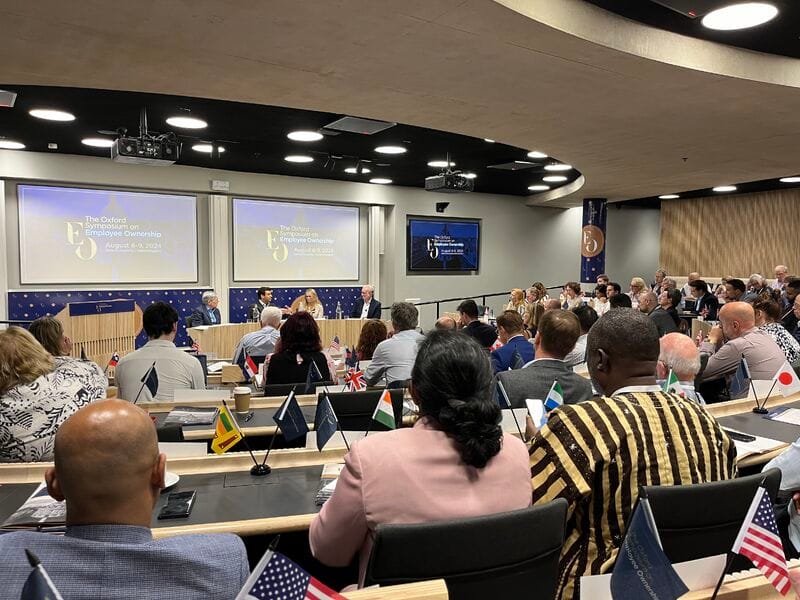
For example, could SNCF's partnerships team or local co-operators engage stakeholders in the finance industry through the following ways:
- Partner overseas stakeholders like Apis & Heritage and Seed Commons to produce panel discussions or conferences on the concepts of non-extractive finance and patient equity, to raise awareness of co-ops in the finance industry?
- Networking with private equity firms, venture capitalists, foundations and banks, at events such as SME conferences or the annual Tech in Asia startup summit?
- Invite representatives from the finance industry to mentor co-ops facing fundraising or business model challenges, as part of their corporate social responsibility?
- Could SNCF setup a fundraising team or hire a consultant to help co-ops secure loans, investments or public crowdfunding? This 'shared service' could free co-ops to devote more energies to their social mission.

Capital access is crucial because through my research talking to veteran co-operators and researching the financial statements of older co-ops, they often started with either: (i) significant loans or grants, (ii) a ready base of investors belonging to a particular religious faith or (iii) operated with volunteers to minimize operating costs.
Besides expecting every co-op to have a viable business model, we must also take on more direct interventions to grow the capital access ecosystem.
Facilitate more internal and external procurement opportunities
Could SNCF encourage more internal procurement opportunities for larger co-ops like those under NTUC or union-linked co-ops like the Amalgamated Union of Public Employees (AUPE) credit co-op to purchase services from startup co-ops and help them gain traction?
For example, could Helmet and The Penguin, a relatively new hairdressing co-op formed in 2020, be engaged to provide haircuts to the seniors in nursing homes run by the NTUC Health co-op?
I know SNCF is already working to create more of these opportunities. They even engaged AGS to deliver a mental wellness workshop for staff of different co-ops.
I think this is a great initiative that could be expanded. Reporting the monetary value of such internal procurement amongst co-ops in RCS' Annual Report could also strengthen the sense of unity amongst co-ops.
raiSE's Festival For Good is an annual, large-scale event at high-traffic locations to help showcase social enterprises and their products / services, video credit: raiSE
SNCF could also organize large-scale events in busy areas like shopping malls where co-ops can promote their services. This would be similar to raiSE's FestivalForGood for social enterprises, supported by the DBS Foundation.
The FestivalForGood had:
- Marketplaces where social enterprises showcased their products to customers and corporate visitors
- Panel discussions and workshops from speakers covering different social impact topics
- Music performances
These events could also allow SNCF to:
- Invite a high-profile Guest of Honor like the Prime Minister or President, which helps to further raise the profile of co-ops in Singapore.
- Bring in regional co-ops to showcase their services, sparking conversations and potential partnerships with neighboring countries
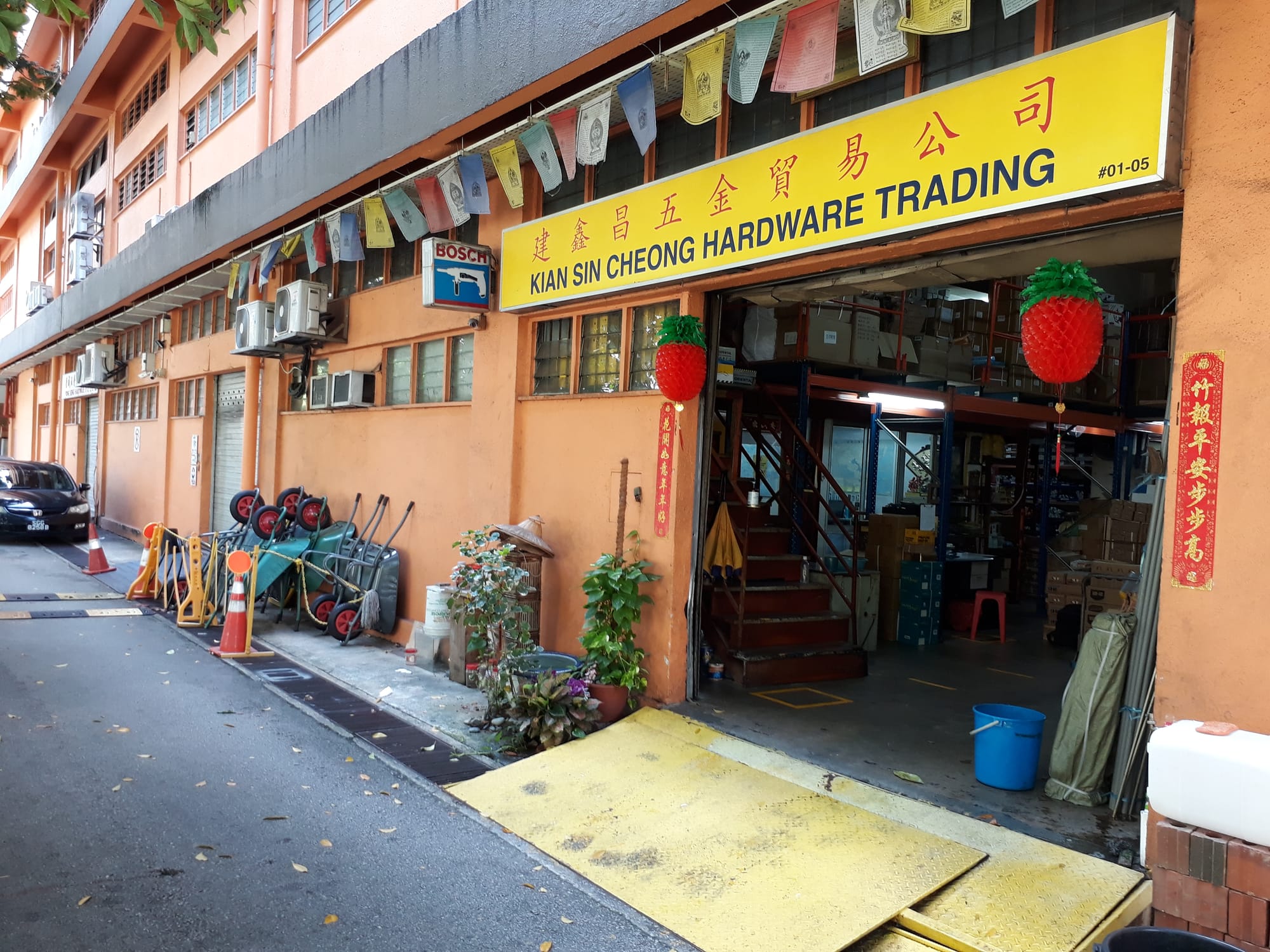
Lack of understanding and imagination of co-ops
Identify and provide conversion support for legacy businesses
SNCF could collaborate with Enterprise Singapore or non-profits like the Heritage Business Foundation to identify SMEs or legacy businesses owners without a succession plan; and support them to explore selling their business to their employees at a fair market price, preserving their jobs and sustaining wealth.
This is an approach known in the U.S. as the 'exit to community' strategy.
SNCF could partner technical assistance providers mentioned in part 2 of this article series, such as the Boston Center for Community Ownership and think tanks such as the Democracy at Work Institute, to take a business through the following conversion process:
- Provide consulting services to help owners and workers to evaluate whether the business is suitable and if there is sufficient interest to be converted into a worker-owned co-op
- Determine appropriate selling price for the business owner and source for financing options
- Support owners and workers to educate everyone involved about the co-op model and set up a transition committee
- Conduct financial, business and industry training to prepare employees for ownership
- Draft the co-op's by-laws and define members of the management team post-transition
- Negotiate final price with the owner, finalize the transfer of business ownership to employees and support workers to elect a new board
- Provide ongoing training to employees where necessary post-transition

To start, SNCF could also do the following:
- Create a simple landing page to explain the conversion co-op model and share success stories to help business owners visualize the concept. The page could encourage owners to meet with an SNCF staff for more detailed advice.
- Partner Enterprise Singapore or the Heritage Business Foundation to host panel discussions or information sessions for business owners to learn more about the conversion co-op model.
As noted in Part 1 of this article series, RCS seems to prefer funding co-ops that are: (i) profitable from Day 1, (ii) run by volunteers with low costs, or (iii) likely to break even within three years.
Working with profitable SMEs or legacy businesses with stable business models to convert them into worker-owned businesses could match RCS's current risk profile and keep the co-op movement relevant.
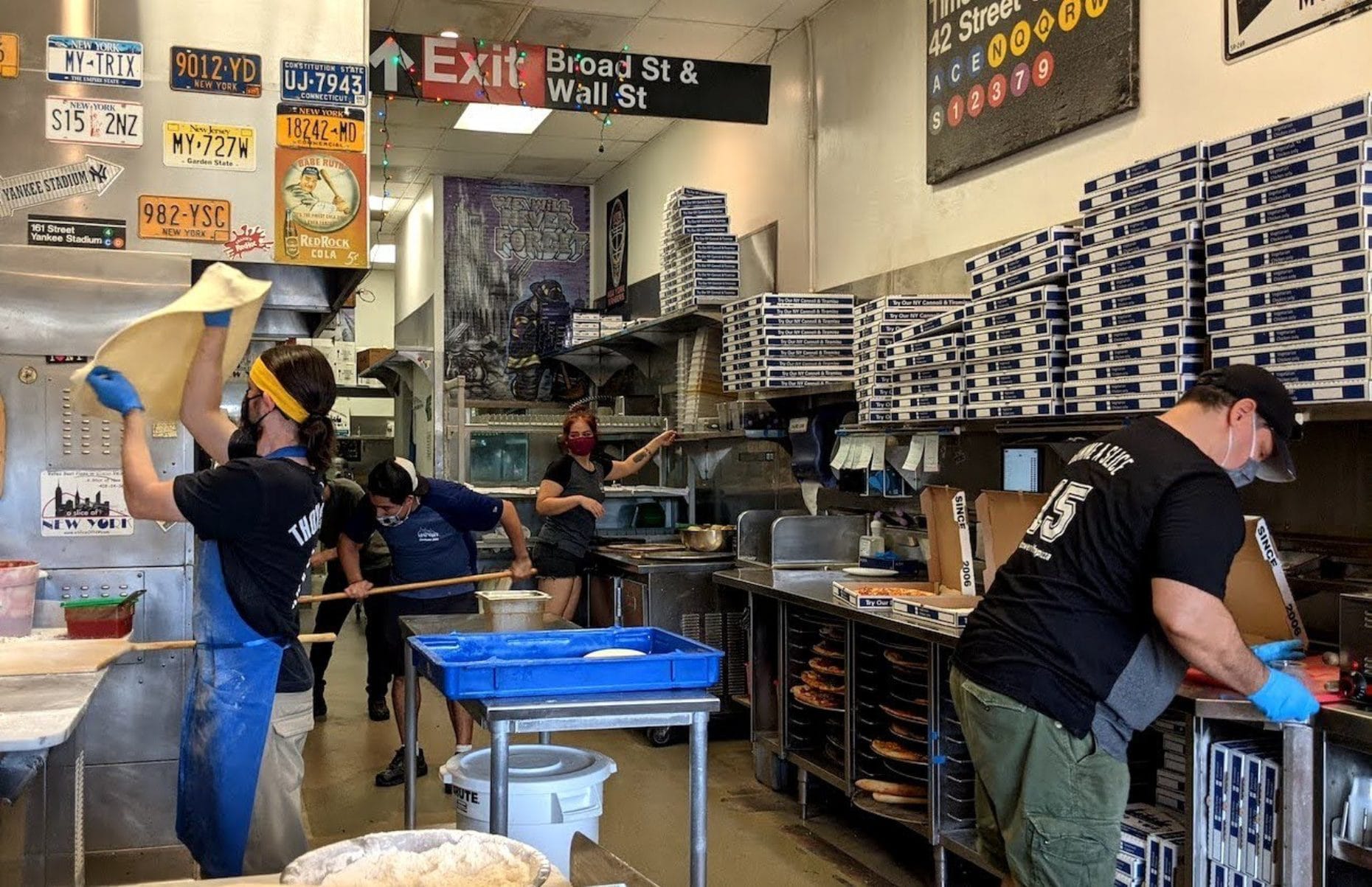
Go overseas for learning journeys
Local co-operators should embark on learning journeys to co-ops in places like New York, Baltimore, Spain, Sri Lanka and Canada, where the ecosystem is vibrant.
Even after three years of running a co-op and reading extensively on the subject, I only truly grasped their potential after visiting co-ops in Baltimore and New York. Meeting co-op leaders and seeing their work first-hand deepened my understanding and reignited my passion and interest in the co-op movement.
These trips shouldn't be limited to co-operators. Inviting funders, policymakers and social workers could help them experience the impact of co-ops directly. This firsthand experience could be a powerful way to build stronger advocates for the co-op movement.
Such trips don't just open eyes; they can build bridges, because going overseas together can build deeper relationships that facilitate collaborative projects after the trip.
A video compiled by Cai Dewei, from the Institute of Policy Studies' Public Affairs Team, of the highlights from our Baltimore study trip, video credit: Institute of Policy Studies
This was what the Institute of Policy Studies (IPS) did when they organized a study trip to visit co-ops in Baltimore back in 2022. Through that, I got to connect with a representative from GIC, which led to AGS beginning a two year partnership with them after the trip.
To fund these journeys, CCF could offer partial sponsorships. Participants could be required to produced learning reports and share their findings at SNCF's Annual Co-operative Leaders Conference (ACLC).
The return on investment of such trips could be transformative for Singapore's co-op ecosystem.

Produce research that advocates for cooperative development
To create more favourable policies and conditions for co-ops to form, SNCF could collect data showing the economic and social benefits of co-ops. Possible research topics include:
- Impact on income inequality - Do co-ops help reduce income inequality by distributing profits more equitably amongst members compared to conventional businesses? For example, previous studies in the United States found that worker owners in a co-op earned an average of $3.52 per hour higher than their previous jobs in traditional businesses and have 92% higher household net worth
- Business resilience - How do co-ops fare during economic downturns compared to conventional businesses? For example, does increased ownership lead to higher job retention rates and financial stability of a business?
- Effectiveness of co-op governance models - Do the democratic governance structures within co-ops lead to better outcomes for employees in terms of job satisfaction and sense of ownership?
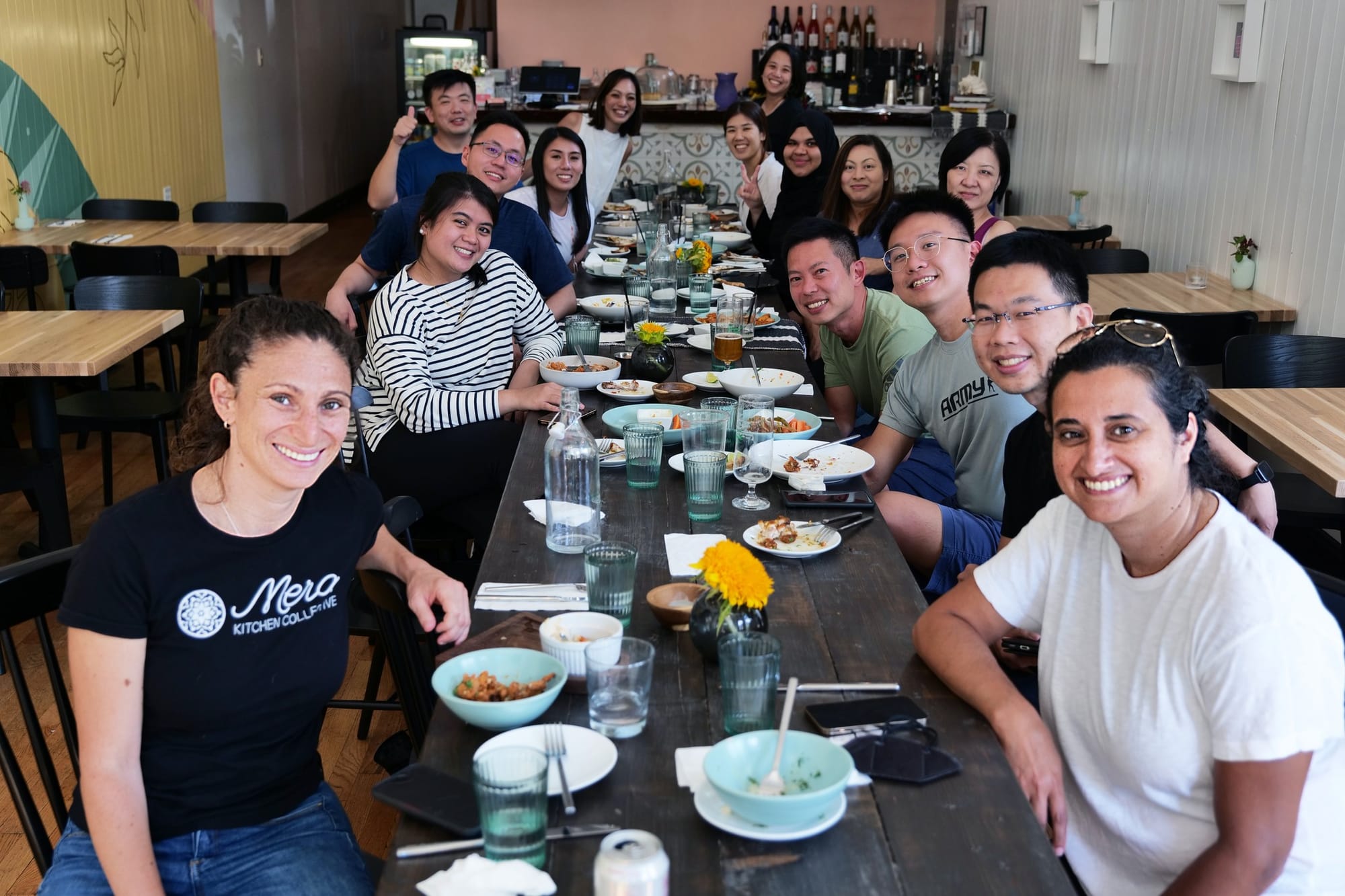
Beyond hiring staff with research capabilities, there are other ways that SNCF can develop these research capabilities:
- Work with organizations like the Institute of Policy Studies (IPS) and in particular, Dr Justin Lee, Senior Research Fellow and Head of the IPS Policy Lab who already has a keen interest in co-ops and was the leader of our study trip to Baltimore
- Get interested volunteers amongst co-operators, perhaps even the young undergraduates who received a scholarship from SNCF to pursue their studies, to form a task-force to conduct specific research studies
- Commission an external research firm who is aligned with the values of the co-op movement to conduct these studies
Such data would help SNCF or other advocates of the co-op movement to build a stronger case to attract increased support from capital access partners and government agencies.

Co-op movement stewarded by only 2 organizations
The key insight from my time in New York City and my recommendation for SNCF and RCS is the need to involve more players for our local co-op ecosystem to thrive.
The work of incubation, training, capital access, thought leadership and research mentioned above will require more than just two organizations.
Here's how I think SNCF and RCS can involve additional players:

Build partnerships with organizations or involve individuals who can play the other roles needed for a thriving co-op ecosystem
They can start building partnerships with both local and international organizations to cover roles not currently addressed in our ecosystem. To summarize some of the potential partnerships mentioned in this article:
- Identify marginalized communities who can benefit from starting a co-op - partner local social service agencies like Beyond Social Services and social enterprises like Skillseed. SNCF can also consult overseas social service agencies like the Center for Family Life in Brooklyn, New York City.
- Provide technical assistance to help co-ops launch or grow - engage Entrepreneurs-in-Residence, involve seasoned co-operators to serve as mentors, partner local Universities like the Singapore University of Social Sciences to launch co-op bootcamps and engage local consultants like Solve n+1 or overseas organizations like the Boston Center for Community Ownership.
- Grow the funding landscape for co-ops - partner overseas capital access stakeholders like Apis & Heritage and Seed Commons to organize conferences and panel discussions to raise awareness of non-extractive finance processes. Local charities like Toteboard and The Majurity Trust might be interested to fund such efforts.
- Identify businesses that are good candidates for conversion into worker co-ops - partner organizations like Enterprise Singapore or the Heritage Business Foundation who have access to such businesses that are already profitable but may not have a succession plan.
- Produce research to advocate for the co-op movement - partner the Institute of Policy Studies or force a research taskforce from volunteers within the co-op movement.
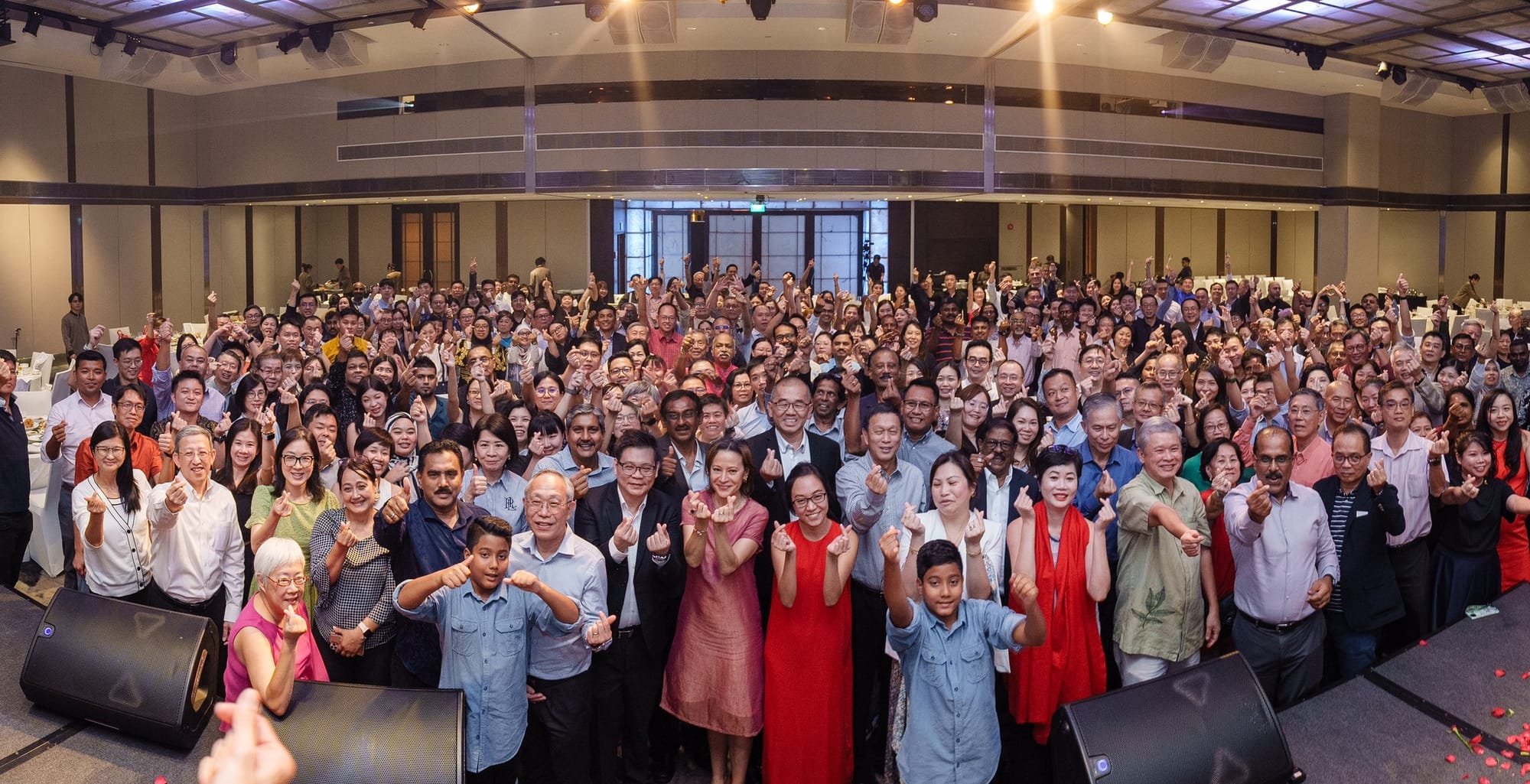
Open more pathways for participation in implementation
While SNCF already adopts a consultative approach by listening to ideas and concerns expressed by co-ops, I think it can benefit from building on that to adopt a co-creation model, allowing passionate co-operators to help with shaping and implementing these ideas raised.
What might this look like? Some ideas include:
- What if we involved youths or co-operators who have experience incorporating a co-op to be on the CCFC that evaluates applications and decides funding amounts for the New Co-op Grant?
- What if we set up task forces with the responsibility and funding resources from SNCF or RCS to implement some of the recommendations listed above, instead of having it lie on the shoulders of SNCF staff?
- Instead of gathering learning topics that co-ops would like to be trained in, what if we gave interested co-operators a small budget to start peer learning circles with other co-operators around professional topics they are interested to learn?
This way, progress in building the co-op movement does not have to be limited by the bandwidth of SNCF staff and it would also promote greater ownership in the co-op movement.

How can the co-op movement stay relevant in Singapore?
Co-ops have been part of Singapore since 1925, addressing social issues by offering services such as regulating the costs of daily necessities and providing affordable loans for education.
2025 will mark 100 years of the co-op movement in Singapore. As we moved from a third-world to first-world country through the efforts of our forefathers, the social issues we face today have also evolved.
Looking ahead, how can the co-op movement stay relevant in Singapore?
My experience in New York City and the research I did while writing this series of articles gives me hope that the co-op movement can stay relevant by adapting in three strategic ways:

In closing, I would like to offer these three final thoughts for the consideration of SNCF, RCS and anyone who cares about the co-op movement:
- Position co-ops as an innovative way to empower marginalized communities - where charities can use co-ops to invest in their beneficiaries to start worker-owned businesses for extra income and social mobility.
- Position co-ops as a way to preserve heritage and jobs - through converting profitable SMEs without succession plans into worker-owned co-ops, enabling the business owner to 'exit to community', preserving heritage businesses and the jobs of employees who may have worked a long time in these SMEs and find it harder to upskill or change jobs.
- To appeal to young people, position co-ops as a vehicle to reduce income inequality - from my conversations with other young people and as a young person myself, there are many who are disillusioned with the downsides of hyper-capitalism - excessive greed, widening income inequality, unsustainable development, etc. If we can show them how a co-op, with its principles of cooperation, equitable profit distribution and member ownership, can be an alternative economic vehicle that reverses social inequality and promotes social justice, I am confident that there will be many youths who will resonate with the values of the co-op movement.
I think these will enable us to handover a stronger, more vibrant co-op movement to our descendants, much like our forefathers did for us 100 years ago.
